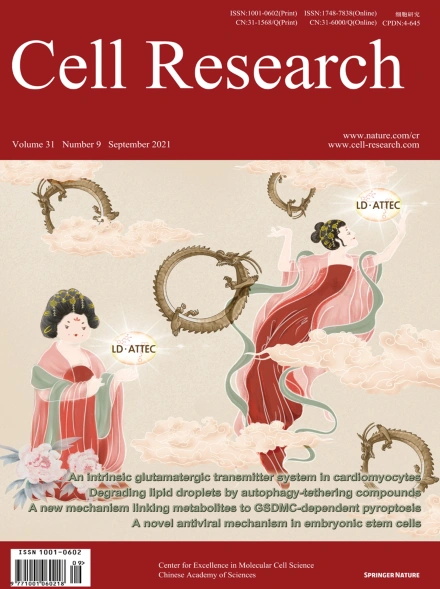
Advanced Search
Submit Manuscript
Advanced Search
Submit Manuscript
Volume 31, No 9, Sep 2021
ISSN: 1001-0602
EISSN: 1748-7838 2018
impact factor 17.848*
(Clarivate Analytics, 2019)
Volume 31 Issue 9, September 2021: 965-979 |
Degradation of lipid droplets by chimeric autophagy-tethering compounds
Yuhua Fu1 , Ningxie Chen1 , Ziying Wang1 , Shouqing Luo2 , Yu Ding1,* , Boxun Lu1,*
1State Key Laboratory of Medical Neurobiology and MOE Frontiers Center for Brain Science, Huashan Hospital, School of Life Sciences, Fudan University, Shanghai, ChinaDegrading pathogenic proteins by degrader technologies such as PROTACs (proteolysis-targeting chimeras) provides promising therapeutic strategies, but selective degradation of non-protein pathogenic biomolecules has been challenging. Here, we demonstrate a novel strategy to degrade non-protein biomolecules by autophagy-tethering compounds (ATTECs), using lipid droplets (LDs) as an exemplar target. LDs are ubiquitous cellular structures storing lipids and could be degraded by autophagy. We hypothesized that compounds interacting with both the LDs and the key autophagosome protein LC3 may enhance autophagic degradation of LDs. We designed and synthesized such compounds by connecting LC3-binding molecules to LD-binding probes via a linker. These compounds were capable of clearing LDs almost completely and rescued LD-related phenotypes in cells and in two independent mouse models with hepatic lipidosis. We further confirmed that the mechanism of action of these compounds was mediated through LC3 and autophagic degradation. Our proof-of-concept study demonstrates the capability of degrading LDs by ATTECs. Conceptually, this strategy could be applied to other protein and non-protein targets.
https://doi.org/10.1038/s41422-021-00532-7